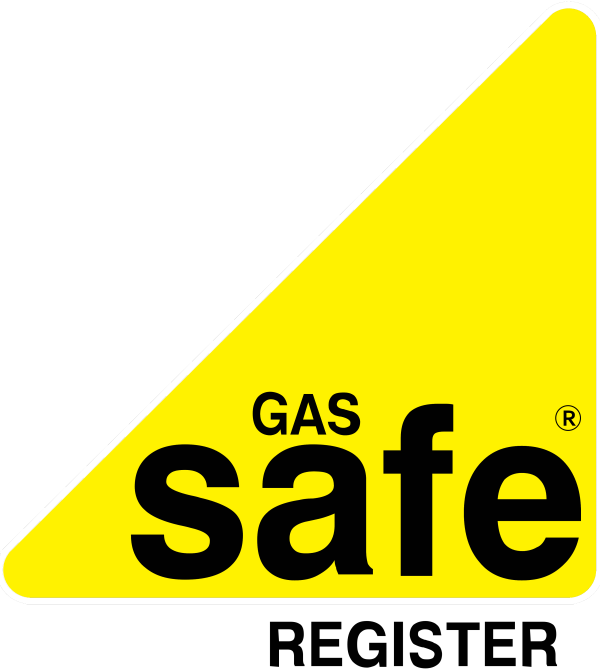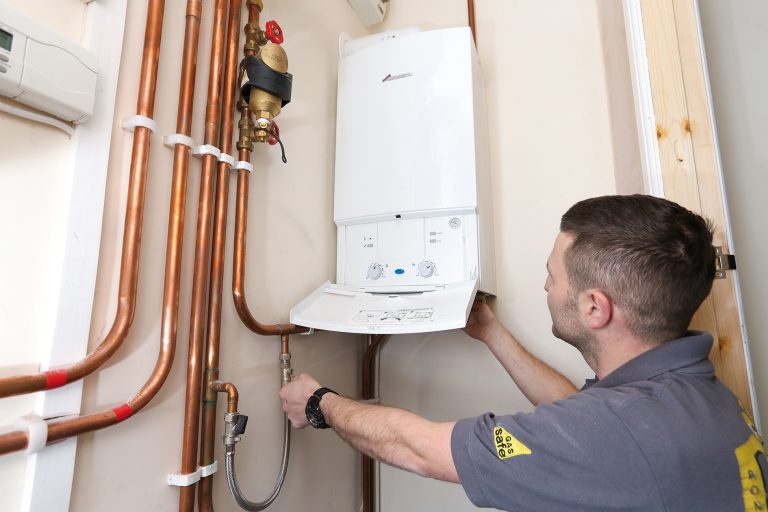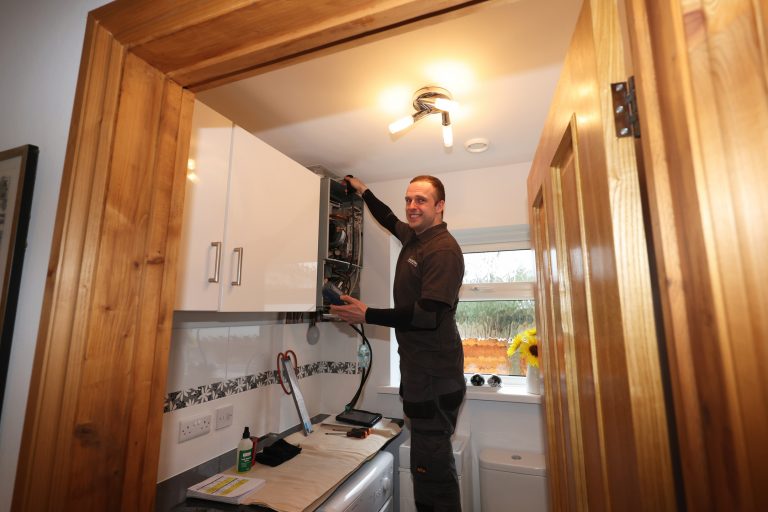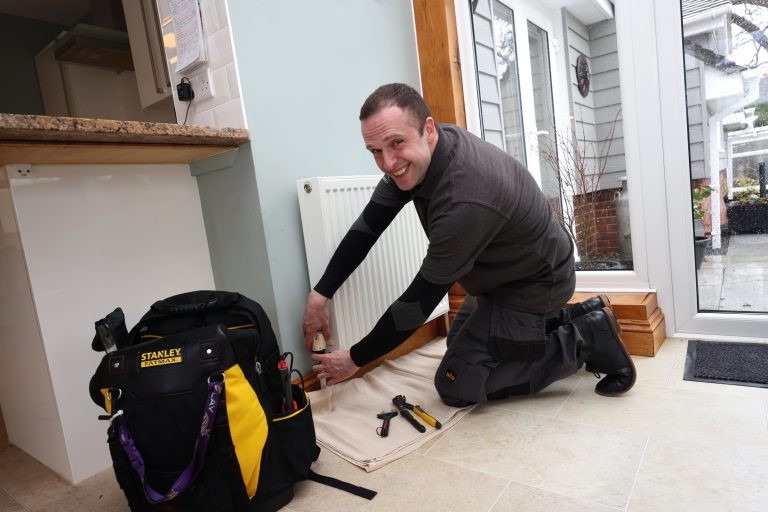A boiler must have the correct pressure for the water to circulate effectively around the property. Boilers typically have a pressure gauge with a needle pointing from zero to four. For the majority of systems, the pressure gauge should be between 1 and 2 bars (this is often marked as a green area on the meter). Although – your boiler manual or a heating engineer will be able to advise better. If your boiler has an LCD screen – it should be easily selected amongst the options available. It is recommended you check the pressure of your boiler on a monthly basis.
If the boiler pressure falls too low – it isn’t as much of a concern as if it is too high however, it may affect the effectiveness of your boiler. Effectiveness is, of course, tied to efficiency so this may result in you paying more essentially for less. If your pressure is too low you may need to top up your system. Each boiler make and model might have a different process for doing this however, the most common way is as below:
- turn the system off and wait for it to cool
- locate the filling loop (this is a flexible hose located underneath the boiler with a valve at each end) make sure both ends are secured and attached to the 2 valves
- open the valves (by using the handles on either side and rotating them clockwise) – this allows the cold water from the mains to enter the system
- watch the pressure gauge as it should be increasing – begin closing the valves when the pressure reaches around 1.5 bars (by rotating them anti-clockwise) to stop the water coming into the system again
- turn the boiler back on – perhaps resetting it, making sure the pressure holds. If the pressure does not hold, there may be an error with the gauge or the heating system itself and it is time to call in the experts.
If the pressure is too high – you may need to bleed your radiators – bleeding of a radiator is done by pressing in a small valve at the top of the radiator, located at one end, with a ‘radiator key’ and holding in until all of the air has been released. We have another blog post on how to do this on our website. This is known to cause cold patches in radiators – or some radiators or areas not heating up as quickly as others and is a common occurrence for un-vented heating systems.
If you have any issues with resolving your boiler pressure or need help don’t hesitate to get in touch with us today, we have a variety of contact options. Aura Heating think it’s important to assist with making fixing of inconveniences, convenient! You can get in touch with us instantly to discuss your radiator or boiler issues using our “live chat” service (bottom right of the screen) or by telephone on 02392 252171 or, please send us your queries via our contact page and we will get back to you as soon as possible!






